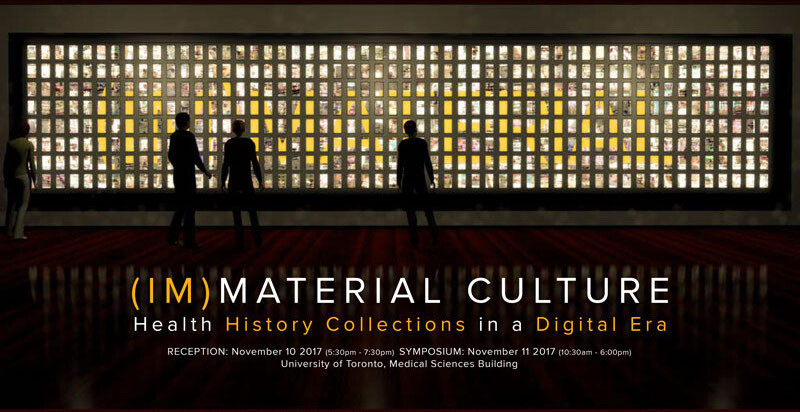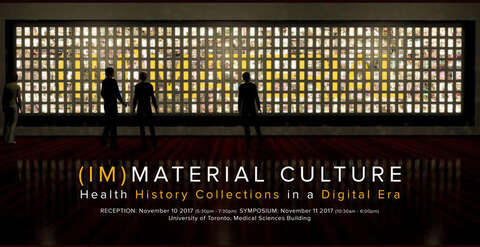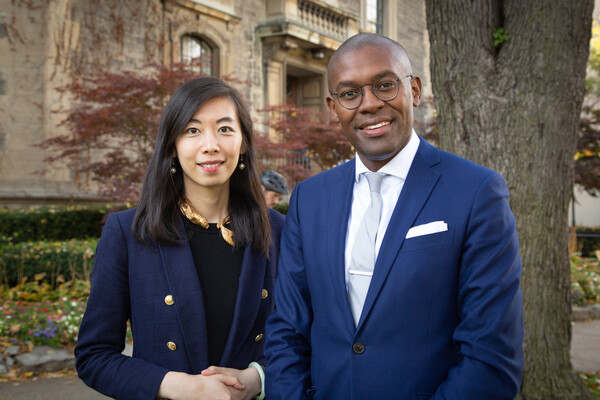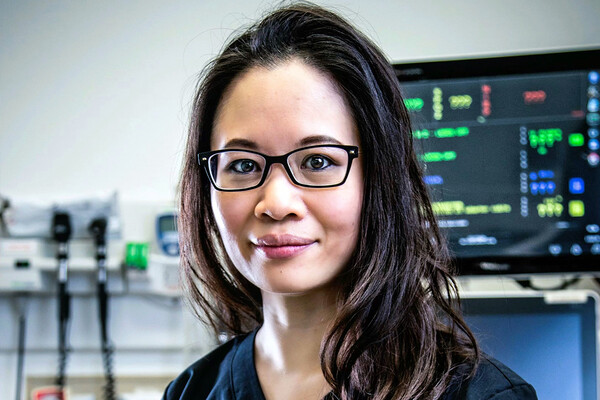Breadcrumbs
- Home
- MD/PhD Program
- News
- Foundations Student Experience blog: Exploring the history of health care in Toronto
Foundations Student Experience blog: Exploring the history of health care in Toronto

Alexandra Majerski

Exposure to at least some medical history is crucial to the development of a healthy scepticism as medical students. It allows us to examine retrospectively the great 'misconceptions' of the past while providing a framework within which we can consider current or future challenges in medicine. It teaches humility by highlighting the challenges faced by brilliant individuals in their effort to advance medicine. It reminds us that it is not one bright individual who revolutionizes a field, but the brilliance of many who try, fail, and try again. Furthermore, a critical analysis of the past helps one to appreciate the ways in which social, political, and cultural forces have shaped changes in medical practice over time and continue to do so today.
Toronto's Healthcare History Mentorship Project is an eight-month long experiential learning program facilitated by senior graduate students from the Institute of the History and Philosophy of Science and Technology at the University of Toronto. Along with graduate students, medical students at the University of Toronto act as mentors for high school students of Indigenous or African ancestry, helping them to develop academic skills by guiding them through the process of preparing a scholarly project related to Toronto’s health care history.
Students involved in the program this year are creating an exhibit related to medicine’s material culture. They have the chance to explore medical objects that were created, used, and kept by past and present health care practitioners. At the end of the program, students will share their research with a larger scholarly audience by presenting their findings at an interdisciplinary symposium hosted by the University of Toronto’s Health History Partnership on November 10 and 11, 2017, (IM)MATERIAL CULTURE: Health History Collections in a Digital Era. In recognition of the importance of health history to healthcare professional education, students will be able to register the symposium for IPE credits.
A few of the objects under investigation this year include a Stanford-Binet test from the Department of Psychology, obstetrical instruments from the medical practice of Dr. Eli Irvine in Weston, Ontario, in the early 1900s, and the ‘GilAir’ Tri-Mode Air Sampler Pump from the Dalla Lana School of Public Health.
It was clear from the first workshop that the nature of the questions used to interrogate these objects parallel the investigative nature of those asked upon obtaining a patient's medical history.
Firstly, basic observations are made.
In what condition is the object? Does it appear worn or has it stood the test of time?
Does the patient appear well, distressed, or fatigued?
Secondly, questions are asked.
Why is the object the way it is? When was it used? What purpose did it serve?
From what disease is this patient suffering? Who else is affected by this patient's suffering? In what ways are the patient's daily activities affecting/being affected by this condition?
Thirdly, after careful consideration, conclusions are drawn.
What does this object reveal about the time in which it was used?
In what ways are our patients impacted by the world in which they live?
Learn more about (IM)MATERIAL CULTURE: Health History Collections in a Digital Era, an interdisciplinary symposium.
News


